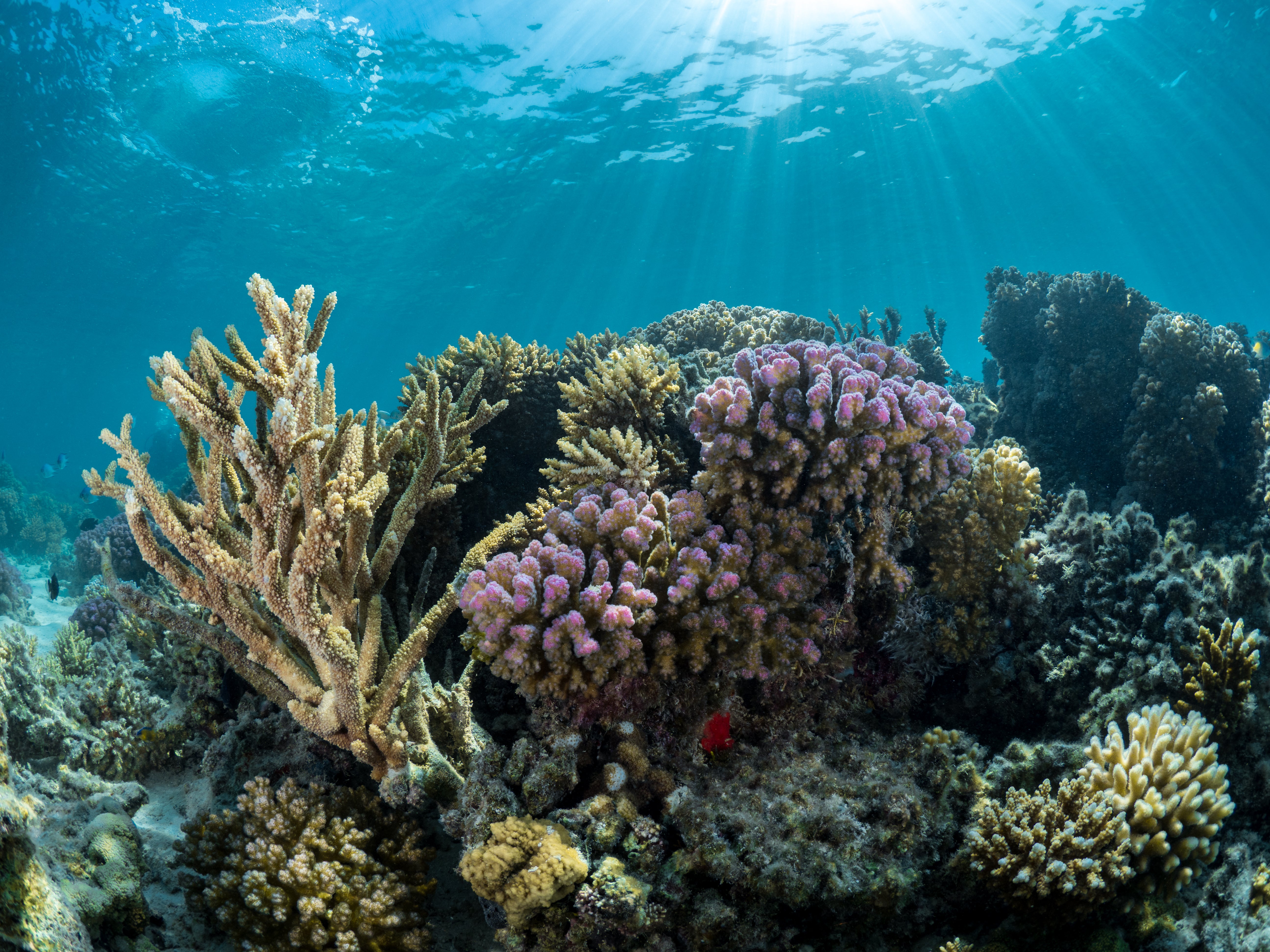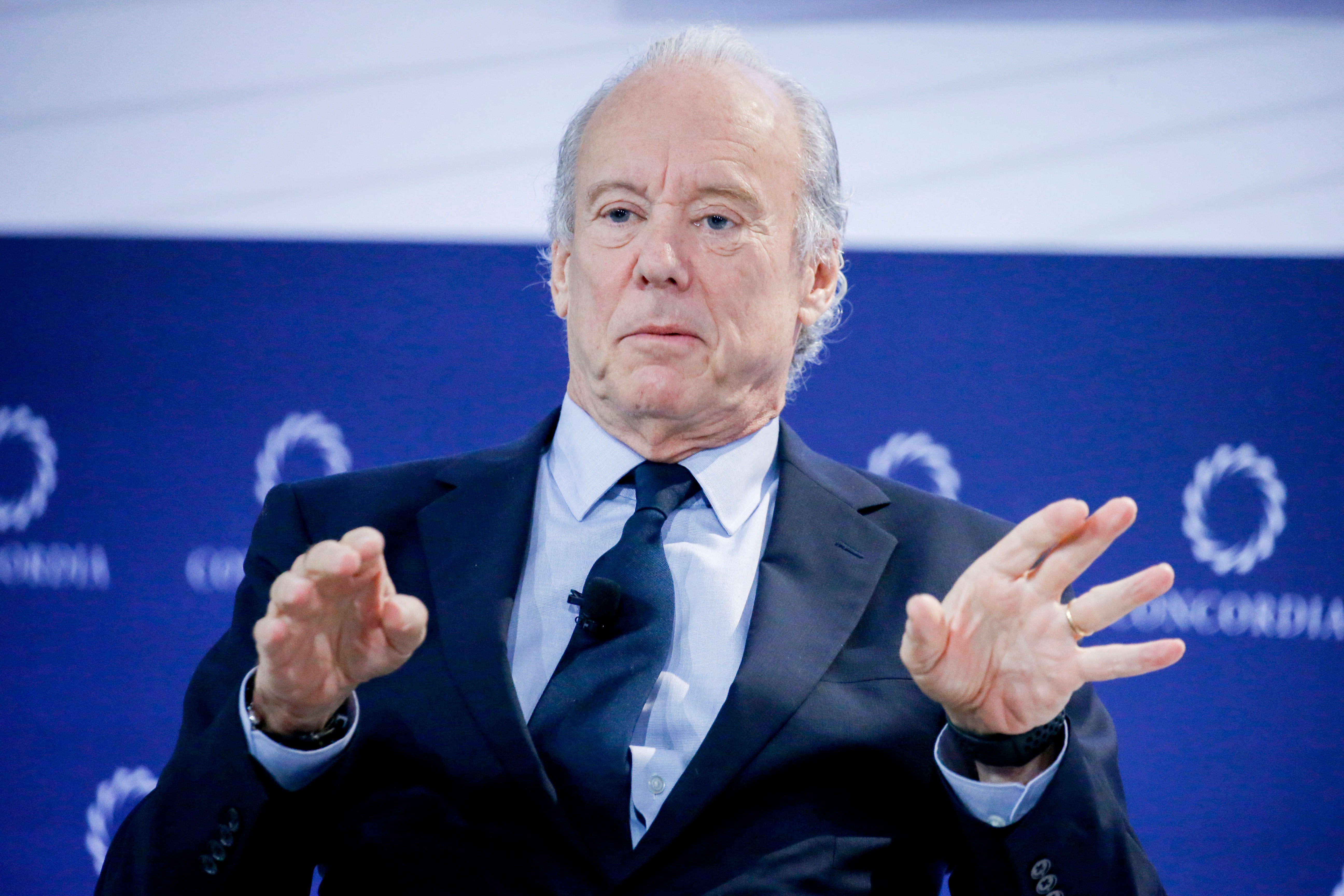In conversation with William McDonough, the man who redefined sustainability
William McDonough’s work has helped shape our thinking about sustainability. We spoke to him as he prepared to address the Saudi Green Initiative
William – or Bill – McDonough, high forehead, his grey hair curling over his collar, exudes wisdom. But as soon as he opens his mouth, you realise the last thing you’re going to get is conventional wisdom.
He’s an American who was born, 71 years ago, in Tokyo. That’s unusual. He trained and works as an architect, but has become best known as an environmentalist, winning both the Presidential award for Green Chemistry and the same award for Sustainability. That’s unusual, too.
And he is a great defender of carbon. He makes the point, not unreasonably, that we and everything else around us, is a carbon-based life form. His, and our problem, is with what he calls “fugitive” carbon – the kind that escapes as a gas and seeps into the atmosphere.
That’s just one of the memorable phrases he has added to the eco-lexicon. “Cradle to cradle” is another – a take on the circular carbon economy that’s proving hugely influential.
He points out that, almost unnoticed, the world recently passed a solemn landmark.
“Two years ago, an article in Nature reported that we've hit the point where the dry mass of human-made objects now exceeds the dry mass of all living things”. So, in a world where the stuff we produce outweighs all life on Earth, how do you find an equilibrium?

Mr McDonough believes we need to be clear about the action we take in the biosphere – preserving natural ecosystems as reserves of the fugitive carbons we produce – and the technosphere, the growing mass of our man-made “stuff”. In short, we need to reuse that stuff creatively so that it is not allowed to ‘go fugitive’ – his cradle-to-cradle principle.
“Nature can generate because it has sunlight, which is an income; and it has carbon, which is an income – that turns into living carbon,” he says. “That’s regenerative. Is that circular? No. Circular is for the technosphere.”
Mr McDonough’s ideas have found fertile ground in Saudi Arabia, where he advises the Saudi Green Initiative, and its ‘giga projects’ designed to transform the economy and the landscape of the desert kingdom. He has struck up a fruitful working relationship with the minister of energy, His Royal Highness Abdulaziz bin Salman Al Saud.

“I know this was natural to him... it was all intrinsic to his thinking. I really enjoy talking to someone who has thought as deeply about this as he has.”
McDonough has also advised the Royal Commission for AlUla, where a deserted desert town has been turned into a thriving hub of art, commerce and tourism. But he was first invited to the kingdom to see an example of a truly remarkable – and resilient – life form.
“Someone said, you really belong on the Red Sea. That’s when I heard that we had a 150km long, pristine coral reef. And that’s a technical term, by the way, in coral, pristine coral reef. I was flabbergasted. And I thought, ‘Let’s do everything we can to preserve this because I don’t understand how it has been preserved so far’”.
Mr McDonough continues to challenge the conventional wisdom and even the language which is so strongly associated with his name.
“I won the presidential award for sustainable development from President Clinton,” he says. “And the press came up with the title ‘Mr Sustainable’. But what does that mean? I said, ‘if I asked you, what’s your relationship with your spouse, and you said, “sustainable”, I’d say – that’s not very interesting.’
“So, I’m more interested in the joy of life and how this works. And so I have a replacement term for sustainability that I’ll be releasing soon.”
Watch that space. When McDonough comes up with a new way of describing the mess we are in, and the things we can do to get out of it, the world tends to listen.
Find out more about the MGI summit and SGI forum here: greeninitiatives.gov.sa



Bookmark popover
Removed from bookmarks